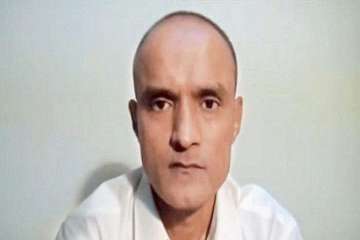Pakistan on Tuesday submitted its second counter reply to India's arguments in the International Court of Justice (ICJ) on the conviction of Indian national Kulbhushan Jadhav, who was sentenced to death by a Pakistani military court in April last year on charges of "espionage". Director India Dr. Fareha Bugti submitted the dossier, along with Waseem Shahzad, an officer of the Embassy of Pakistan at the ICJ, said media reports.
Pakistan's rejoinder to India's last reply on April 17 has been prepared by a team of experts lead by the country's attorney general Khalid Javed Khan. The UN Court will now fix the matter for hearing, which is likely to take place next year.
India had moved the International Court of Justice in May last year after Mr Jadhav, 48, was sentenced to death by a Pakistani military court on charges of espionage.
A 10-member bench of the International Court of Justice on May 18 had restrained Pakistan from executing Jadhav till adjudication of the case.
In its written plea, India had highlighted Pakistan's violation of the Vienna Convention by not giving consular access to Mr Jadhav, arguing that the convention did not say that such access would not be available to an individual arrested on espionage charges.
In response, Pakistan through its counter-memorial on December 13 told the ICJ that the Vienna Convention on Consular Relations 1963 applied only to legitimate visitors and did not cover clandestine operations.
In their statement, Pakistan continued to call Mr Jadhav, who was in Iran for business when he was kidnapped, as "a serving naval officer". The statement came despite India making it clear that he had retired from the navy and was in Iran to pursue business interests.
Pakistan, in their reply, further claimed that Mr Jadhav "was on active duty", and that "he was a spy sent on a special mission." Both claims, that have been rejected by India.
India has been maintaining that the trial of Mr Jadhav by a military court in Pakistan was "farcical".
Pakistan claims that its security forces arrested Mr Jadhav from Balochistan on March 3, 2016 after he allegedly entered from Iran.
India maintains that Mr Jadhav was kidnapped from Iran where he had business interests after retiring from the navy. Mr Jadhav's sentencing had evoked a sharp reaction in India.
Latest World News

